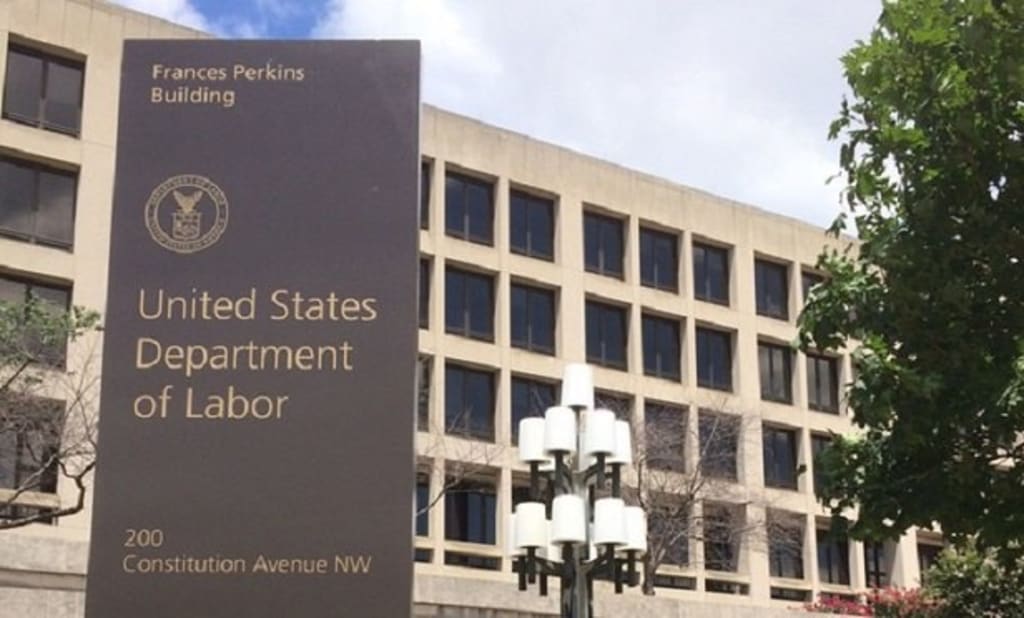New DOL Fiduciary Rule Coming in August
The Department of Labor (DOL) is set to introduce a new fiduciary rule in August. This rule aims to protect investors by imposing stricter regulations on financial advisors and their interactions with clients.

New DOL Fiduciary Rule Coming in August
Introduction
The Department of Labor (DOL) is set to introduce a new fiduciary rule in August. This rule aims to protect investors by imposing stricter regulations on financial advisors and their interactions with clients. The upcoming changes are expected to have a significant impact on the financial industry. In this article, we will explore the key aspects of the new DOL fiduciary rule and its implications for investors and financial advisors.
Table of Contents
Understanding the Importance of Fiduciary Duty
Background of the Previous DOL Fiduciary Rule
Reasons for the Revision
Key Features of the New DOL Fiduciary Rule
Enhanced Fiduciary Standards
Expanded Definition of Fiduciary Advice
Elimination of Exemptions
Strengthening Enforcement Mechanisms
Implications for Financial Advisors
Increased Accountability
Potential Changes in Compensation Models
Compliance Challenges
Impact on Investors
Greater Transparency
Reduction of Conflicts of Interest
Access to Suitable Investment Options
Compliance and Preparation
Training and Education
Reviewing Policies and Procedures
Seeking Legal Counsel
Timeline and Implementation
Conclusion
FAQs
Understanding the Importance of Fiduciary Duty
H1: What is Fiduciary Duty?
Fiduciary duty is a legal and ethical responsibility that requires individuals to act in the best interest of their clients or beneficiaries. Financial advisors with fiduciary duty are obligated to provide advice and recommendations that prioritize the client's needs and goals.
Background of the Previous DOL Fiduciary Rule
The previous DOL fiduciary rule, introduced in 2016, sought to address conflicts of interest in retirement advice. It aimed to ensure that financial advisors acted in the best interest of their clients when providing retirement investment advice. However, the rule faced legal challenges and was eventually vacated in 2018.
Reasons for the Revision
H2: Raising Standards for Investor Protection
The revision of the DOL fiduciary rule is driven by the need to enhance investor protection and restore trust in the financial advisory industry. The previous rule's elimination created a regulatory gap that left investors vulnerable to potential conflicts of interest.
H2: Aligning with SEC Regulation
The Securities and Exchange Commission (SEC) has also taken steps to establish a uniform fiduciary standard for financial advisors. The revised DOL fiduciary rule aims to align with the SEC's Regulation Best Interest (Reg BI) to ensure consistency in the level of protection provided to investors.
Key Features of the New DOL Fiduciary Rule
Enhanced Fiduciary Standards
Under the new rule, financial advisors will be required to meet a heightened fiduciary duty when providing investment advice to retirement savers. This means advisors must act in the best interest of their clients, ensuring that recommendations are suitable and free from conflicts of interest.
Expanded Definition of Fiduciary Advice
The revised rule broadens the definition of fiduciary advice to encompass more types of investment recommendations. This expansion aims to ensure that advisors cannot circumvent fiduciary obligations by structuring their advice in certain ways.
Elimination of Exemptions
The new rule eliminates certain exemptions that allowed advisors to receive certain compensation arrangements that may have conflicted with their clients' best interests. By removing these exemptions, the DOL aims to further protect investors from potential conflicts of interest.
Strengthening Enforcement Mechanisms
The DOL plans to strengthen enforcement mechanisms to ensure compliance with the fiduciary rule. This includes increased coordination with other regulatory bodies and conducting regular examinations to detect and address potential violations.
Implications for Financial Advisors
Increased Accountability
Financial advisors will face higher accountability under the new fiduciary rule. They will need to demonstrate that their recommendations are in the best interest of their clients and be prepared to justify any potential conflicts of interest.
Potential Changes in Compensation Models
Advisors may need to reassess their compensation models to align with the new rule's requirements. Compensation structures that create incentives for advisors to recommend certain products or services may need to be revised to mitigate conflicts of interest.
Compliance Challenges
Complying with the new rule may pose challenges for financial advisors. They will need to review and update their policies, procedures, and compliance systems to ensure adherence to the enhanced fiduciary standards.
Impact on Investors
Greater Transparency
The new fiduciary rule aims to promote transparency in the financial advisory relationship. Investors can expect clearer and more comprehensive information regarding fees, potential conflicts of interest, and the nature of the advice they receive.
Reduction of Conflicts of Interest
With the stricter regulations in place, the new rule aims to minimize conflicts of interest that may influence advisors' recommendations. This ensures that investors can make more informed decisions without undue bias or self-interest from advisors.
Access to Suitable Investment Options
The fiduciary rule aims to improve investors' access to suitable investment options by requiring advisors to prioritize their clients' best interests. This ensures that advisors consider a wider range of investment products and strategies when making recommendations.
Compliance and Preparation
Training and Education
Financial advisory firms will need to provide training and education to their advisors regarding the new fiduciary rule. This ensures that advisors understand their obligations and are equipped with the knowledge to comply with the enhanced standards.
Reviewing Policies and Procedures
Firms should review and update their policies and procedures to align with the requirements of the new rule. This includes revising compensation structures, disclosure practices, and compliance protocols to ensure they meet the higher fiduciary standards.
Seeking Legal Counsel
Given the complexities of the new fiduciary rule, financial advisory firms may benefit from seeking legal counsel to ensure their practices and procedures are fully compliant. Legal experts can provide guidance and help navigate potential compliance challenges.
Timeline and Implementation
The new DOL fiduciary rule is set to take effect in August. Financial advisors and firms should familiarize themselves with the rule's provisions and take the necessary steps to ensure compliance before the implementation date.
Conclusion
The forthcoming DOL fiduciary rule represents a significant development in investor protection within the financial advisory industry. By strengthening fiduciary standards and addressing conflicts of interest, the rule aims to enhance transparency and accountability. Financial advisors will need to adapt to the new requirements, while investors can expect greater safeguards and access to suitable investment options.
FAQs
Q1: How does the new DOL fiduciary rule impact financial advisors?
Financial advisors will face increased accountability, potential changes in compensation models, and compliance challenges under the new rule.
Q2: What are the key features of the new DOL fiduciary rule?
The key features include enhanced fiduciary standards, an expanded definition of fiduciary advice, elimination of exemptions, and strengthened enforcement mechanisms.
Q3: How does the new rule benefit investors?
The new fiduciary rule promotes greater transparency, reduces conflicts of interest, and provides investors with access to suitable investment options.
Q4: When does the new DOL fiduciary rule come into effect?
The new rule is set to take effect in August.
Q5: How can financial advisory firms prepare for the implementation of the new rule?
Firms should provide training and education, review policies and procedures, and seek legal counsel to ensure compliance with the new fiduciary rule.





Comments
There are no comments for this story
Be the first to respond and start the conversation.